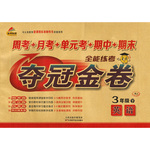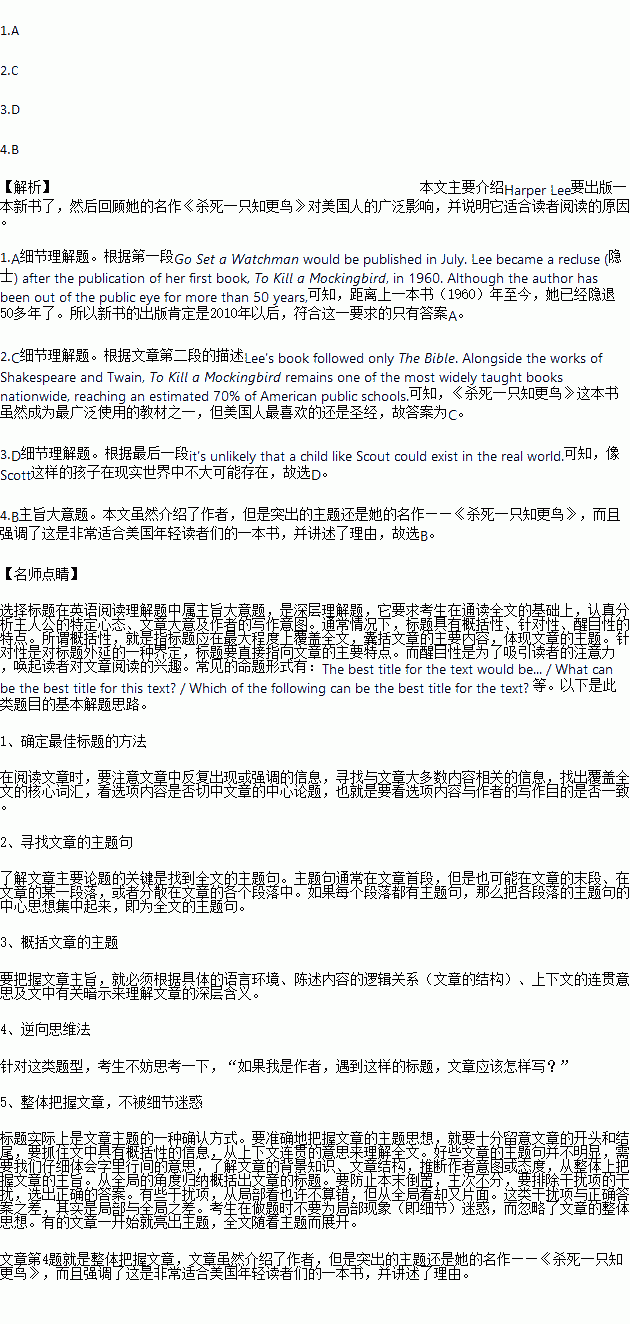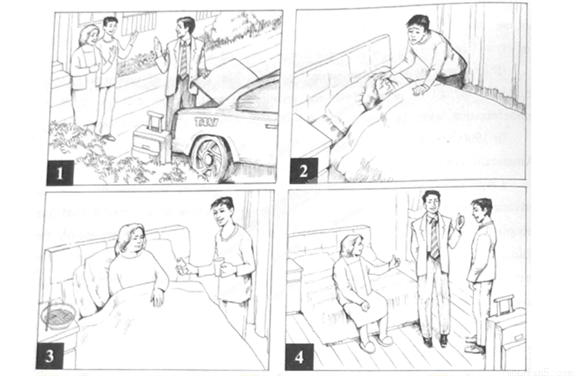题目内容
The news of Harper Lee’s second novel broke the internet. Go Set a Watchman would be published in July. Lee became a recluse (隐士)after the publication of her first book, To Kill a Mockingbird, in 1960. Although the author has been out of the public eye for more than 50 years, the wave that followed the announcement showed her novel’s beloved place in the American literary works.
In 1991, The Book of the Month Club and the library of Congress conducted a survey that made readers identify books that had made a difference in their lives. Lee’s book followed only The Bible. Alongside the works of Shakespeare and Twain, To Kill a Mockingbird remains one of the most widely taught books nationwide, reaching an estimated 70% of American public schools. What makes it such a perfect read for young people?
English class is a place where young Americans come to know themselves. In the folds of dusty books, students can make contact with humanity beyond the superficial(肤浅的) conversations of the school hallways. Literature promises relief, a place to figure out one’s problems and get to know oneself better.
To Kill a Mockingbird particularly distinguishes itself in this regard. It speaks in child’s voice without treating its readership as children. People have called it an ‘impossible’ achievement, a children’s book penned in the prose(散文) of a well-educated adult—it’s unlikely that a child like
Scout could exist in the real world. But that’s exactly what makes it such a charming read for young people. It alludes to (转弯抹角地说到)the consciousness of a well-educated adult going through difficult realities, but shows it through the light and playful voice of a curious little girl.
1.In which year might Go Set a Watchman come out?
A. 2015 B. 1960 C. 1910 D. 1991
2.Which book leaves the deepest impression on American readers?
A. Go Set a Watchman B. To Kill a Mockingbird
C. The Bible D. Shakespeare’s works
3.Which of the following statements is right about To Kill a Mockingbird?
A. Its author may be a playful child.
B. It’s a story about a well-educated adult.
C. Young people can see themselves from it.
D. It’s impossible for children like Scout to exist.
4.What is the best title for the text?
A. The Great Writer: Harper Lee B. The Great Young People Novel
C. Voices from Children D. Differences Harper Lee made
 夺冠金卷全能练考系列答案
夺冠金卷全能练考系列答案

